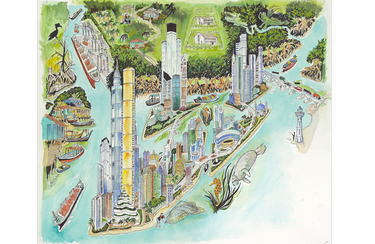Socially-Responsible Real Estate Development
Explore socially-responsible real estate development, including the role of impact assessment and public consultation.
Explore socially-responsible real estate development, including the role of impact assessment and public consultation.
Explore socially-responsible real estate development, including the role of impact assessment and public consultation.
How can you determine if a proposed real estate development project is socially responsible?
Week 1: What is socially-responsible real estate development?
Introduction to the concept of socially-responsible real estate development and overview of estimating the social and environmental impacts of real estate development.
Week 2: Environmental Impact Assessments (EIA)
Focus on the EIA process and its role in socially-responsible real estate development.
Week 3: Social Impact Assessments (SIA)
Focus on the SIA process and its role in socially-responsible real estate development.
Week 4: Forest City Case Study and Dealing with an Angry Public
Overview and analysis of the ongoing Forest City case study in Johor Bahru, Malaysia. Discussion of when to use EIA and SIA, dealing with an angry public, negotiating compensatory agreements, and the role of continuous adaptive management.
Week 5: Conclusion: Creating Shared Benefits
How to create shared benefits, meet stakeholder interests, and integrate the tools and processes you have learned in practice.
None. This course can accommodate a range of learners including those with limited knowledge or experience in the field.


